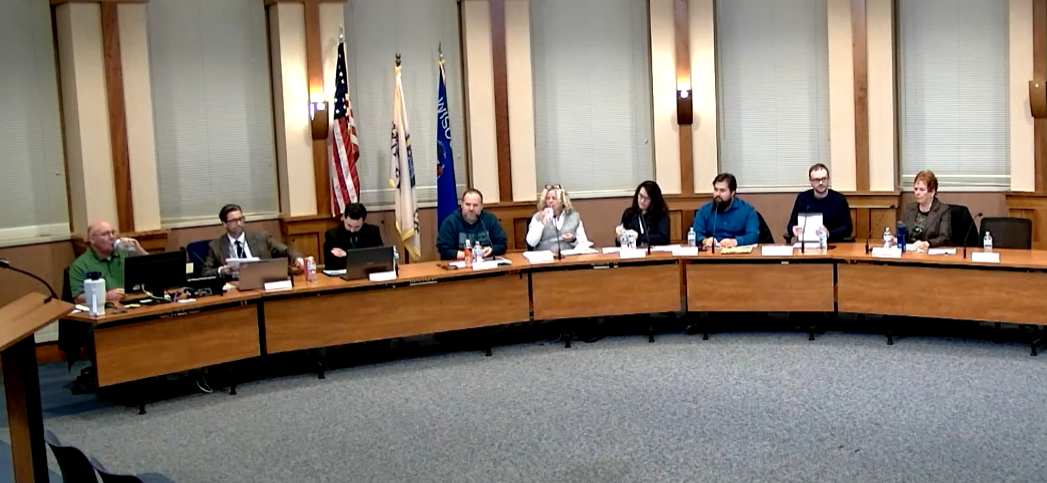The March 5 Whitewater Common Council meeting included a neighborhood code enforcement report and a plan to potentially charge for the use of emergency services in the Twin Oaks community area. The council also discussed negotiations for the Whitewater Aquatic & Fitness Center, received the city manager report, and discussed how long security cameras should store recordings. Kelly Freeman was honored as the first responder of the year for the 31st Assembly District.
Beginning at the first of the year the company Municipal Code Enforcement LLC began its contract with the City of Whitewater. The company’s purpose is to help a city enforce its building codes. Allison Schwark represented the company at the Common Council meeting to report on their progress. Schwark began by describing what exactly the company does, namely watching out for code violations like junk vehicles, failing to maintain your property, etc.
Schwark then gave some information about the company, namely which areas they service and the benefits of hiring them.
Once Schwark finished telling the Common Council about the benefits of hiring them she began to describe the process of monitoring the city. Namely, they begin by driving through the city several times a week looking for code violations. If they see one they send a letter to the household informing them of the violation, and after some time has passed they re-check the property to see if they have complied. If they haven’t, a final notice is issued and the property is reinspected. If the property is still not in compliance they will receive a third notice and a second inspection, and if the property still does not comply they are issued a citation. Schwark said that she is on track to giving out 400 letters by the end of the first quarter to the community informing them that they have a violation.
“I want to work with everyone,” said Schwark. I want residents to reach out to me.”
She also added that she hoped that the number of violations issued would dramatically fall as time went on and residents became more aware of building codes. Schwark also said that her company is focusing on the Twin Oaks community, which is also facing increased scrutiny from the Common Council.
It comes in the form of an ordinance that seeks to begin performing “special assessments” of the Twin Oaks community. This special assessment would, in simple terms, take the cost of the emergency services operating in Twin Oaks and subtract the amount Twin Oaks pays in taxes from that cost, with the difference then charged to the mobile home community. The cost of emergency services operating is calculated by using the number of calls from the community that emergency services respond to. The reasoning behind this ordinance is the fact that using their calculation the cost of the emergency services responding to calls is more than triple what Twin Oaks pays in taxes.
The bill for the special assessment would go to the investment company that owns the mobile home park, not to the residents of the park.
The council decided to postpone consideration of this bill until they could get more information – specifically what kind of calls were being made to the emergency services. The Common Council wanted to know if the calls were for actual emergencies, or if the Twin Oaks residents were asking emergency services to deal with things outside of its purview. There was also some concern that the bill would end up being paid by Twin Oaks residents if, for example, the company raised parking prices to pay the fee.
“I am concerned that the investment company will pass the cost off to residents,” said Council Member Brienne Brown. “It might be okay, but I want to know who’s going to pay.”
In response, it was suggested that the city only charge a partial fee, such as charging 50 percent of the special assessment fee.
The next Common Council meeting is slated for March 19.


